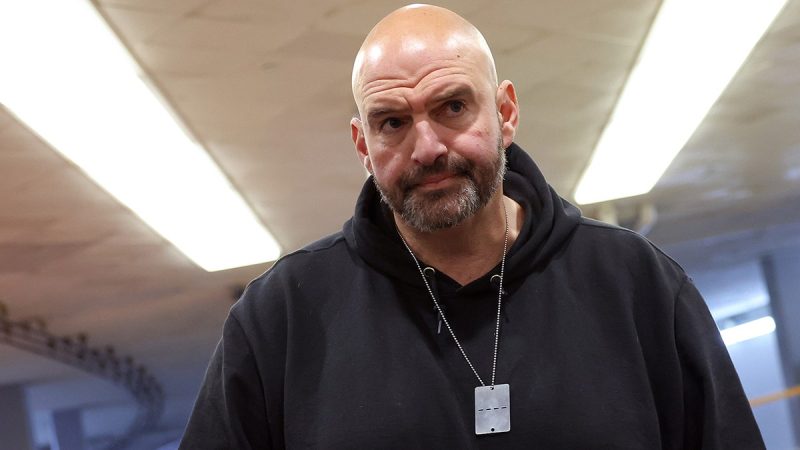
Why Fetterman is right: The fight against cashless stores defends Main Street and working-class Americans
Sen. John Fetterman may be a Democrat, but on the issue of banning cashless-only businesses, he’s 100% right – and every small business owner, working-class American and financial realist should take note.
As a financial planner and entrepreneur, I’ve seen how pushing the U.S. toward a fully cashless society doesn’t just inconvenience people – it hurts them. It widens the wealth gap, excludes millions from daily commerce and puts Main Street businesses at a competitive disadvantage.
When Fetterman says, ‘It’s simple – it’s legal tender. If you accept money, you have to accept all money,’ he’s not just making a populist statement. He’s standing up for every American who gets punished simply for trying to pay with the money they earned.
Let’s look at the numbers:
5.9 million U.S. households are unbanked (FDIC).
18.7 million more are underbanked, relying on check cashers, prepaid cards and money orders.
13% of Americans use cash for all or most purchases.
Nearly 40% of Americans couldn’t cover a $400 emergency.
When a store refuses cash, it’s essentially telling millions of people – especially seniors, low-income earners and minorities – that their money isn’t welcome.
As the Pennsylvania senator put it, ‘We can’t let stores discriminate against people just because they don’t have a credit card or a smartphone.’
This push toward a cashless economy is driven by tech elites who assume everyone has digital access. Aren’t you sick and tired of the guilt tipping button that now asks you for 20 or 25 or 30% tip with a server watching over you to see what you are going to give them. But this isn’t Silicon Valley – it’s America. Here, you should be able to buy lunch or medicine with a few bucks in your pocket.
And for many Americans, cash isn’t optional – it’s essential.
As someone who works with business owners every day and having owned a concrete driveway installation company, I can tell you, going cashless is bad for business. Here’s why:
Swipe Fees Eat MarginsEvery card transaction costs businesses 1.5% to 3.5%. On tight margins, that’s real money – especially in food, retail and service sectors.
Fewer Impulse BuysStudies show people are more thoughtful when using cash. That’s good for consumers – and helps prevent overreliance on credit.
System Outages Kill SalesWhen the power goes out or internet fails – like during the 2021 Texas storm – only businesses accepting cash could stay open. In emergencies, cash is king.
Customer LossMany older adults and working-class families still use cash daily. Turning them away is just bad business.
Every digital transaction is tracked. Your location, purchases and habits are cataloged and monetized by Big Tech and banks.
Cash, on the other hand, protects privacy. No monthly statements, no tracking, no algorithms.
The more we give up cash, the more control we give away – to institutions that charge fees, track behavior and limit access.
Cities like Philadelphia, San Francisco and New York have already banned cashless-only retail. It’s time to go national.
Fetterman’s proposed federal law would:
Require all physical stores to accept U.S. currency.
Impose penalties on violators.
Allow exceptions for online-only or high-security federal locations.
It’s not about resisting innovation – it’s about ensuring inclusion. Legal tender should mean what it says: legal for all debts, public and private.
Once we lose cash, we lose a piece of our freedom. We become more dependent on banks, apps and companies that profit off our transactions and control access to our own money.
Fetterman nailed it: ‘We’re going to keep pushing until every American – regardless of income – can walk into a store and buy what they need with a few bucks in their pocket.’
He’s right. And if we care about fairness, privacy and keeping Main Street open to all, we need to get behind him.
Because cash isn’t just currency. It’s economic liberty – and it’s worth protecting.
